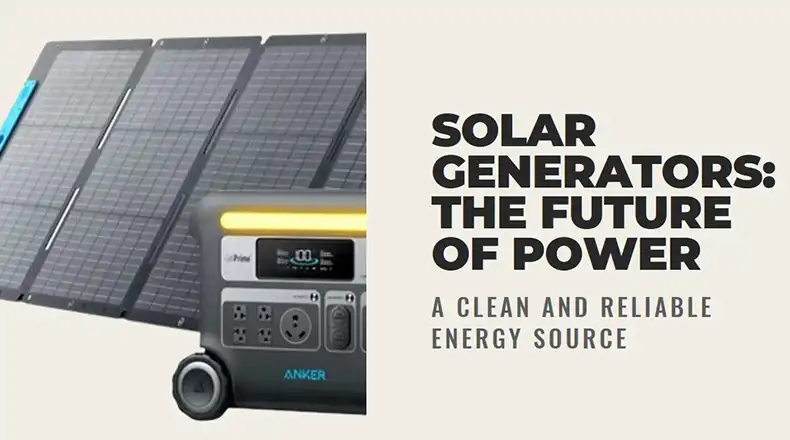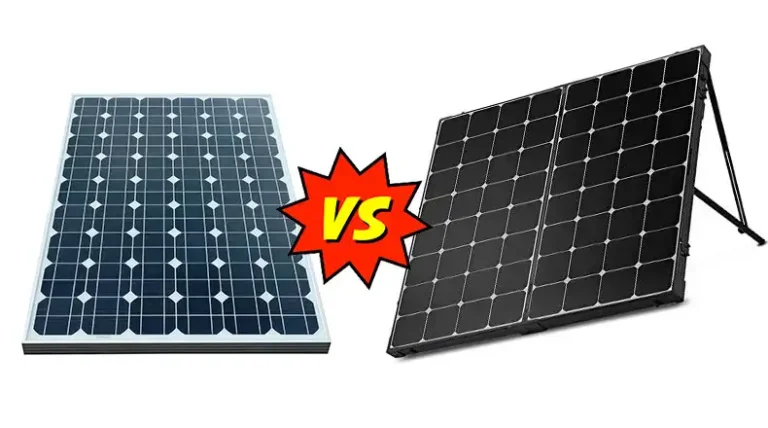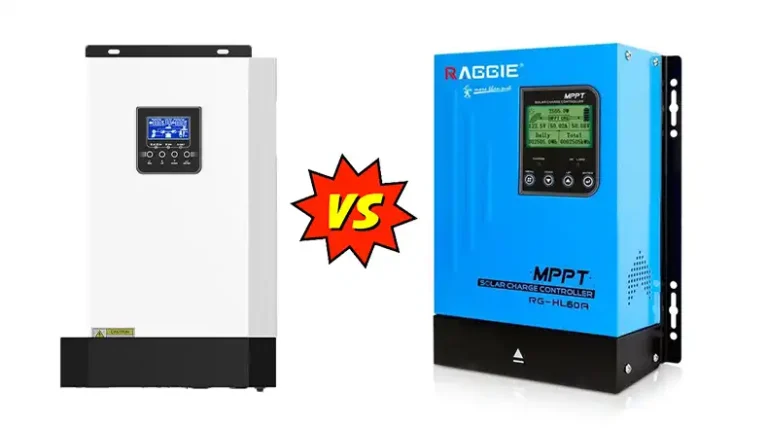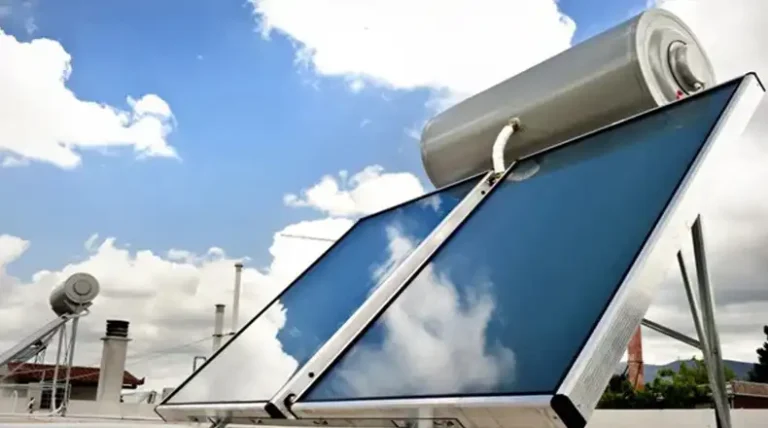Why Are Solar Generators Becoming More Popular? Explained
Solar generators are getting really popular lately. People want affordable and eco-friendly ways to power their homes and activities. These generators use sunlight to create electricity. This makes them cheap to run and good for the environment. The demand for solar generators is rising because they solve many problems. This article will explain in detail why solar generators are becoming so popular and how they can benefit you.

Renewable and Sustainable Energy Source
As we become increasingly aware of the finite nature of fossil fuels and their detrimental impact on the environment, the quest for renewable and sustainable energy sources has taken center stage. Solar energy, harnessed through solar generators, stands out as a virtually inexhaustible and clean source of power.
Unlike traditional generators that rely on fossil fuels like gasoline or diesel, solar generators convert sunlight directly into electrical energy through their integrated solar panels. This process is entirely emission-free, making solar generators an eco-friendly choice for powering your devices and appliances. With every charge from the sun, you’re contributing to a greener, more sustainable future.
Moreover, the sun’s energy is abundant and renewable, ensuring a reliable source of power for years to come. As long as the sun continues to shine, solar generators can provide a steady stream of electricity, making them an ideal solution for both residential and commercial applications.
Cost Saving Solution
One of the primary drivers behind the growing popularity of solar generators is their potential to save you money in the long run. While the initial investment in a solar generator system may be higher than traditional gas-powered generators, the ongoing costs are significantly lower.
According to the National Renewable Energy Laboratory (NREL), solar energy is now the cheapest source of electricity in many parts of the world. According to GreenLancer, U.S. customers can save about $1,500 a year by going solar!
Traditional generators require a constant supply of fuel, which can be expensive and subject to price fluctuations. Additionally, the cost of maintenance and repairs can quickly add up, making them a costly investment over time. Solar generators, on the other hand, rely on the free and abundant energy from the sun, eliminating the need for fuel purchases and reducing maintenance requirements.
Environment Friendly
As the world grapples with the pressing issue of climate change and environmental degradation, the need for eco-friendly energy solutions has never been more crucial. Solar generators stand out as a clean and sustainable option, as they do not produce any harmful emissions or contribute to air pollution.
Traditional generators that run on fossil fuels release greenhouse gases and other pollutants into the atmosphere, contributing to global warming and compromising air quality. In contrast, solar generators operate silently and without any emissions, making them an environmentally responsible choice for power generation.
According to studies, diesel generators can emit up to 11 times the particulate matter (PM) standards set by manufacturers as they age. A single industrial diesel generator producing 800 horsepower can emit PM emissions equivalent to driving a heavy-duty diesel truck for 660 miles in just one hour of operation. Furthermore, diesel generators produce substantial amounts of carbon dioxide (CO2), with emission factors ranging from 2.4 to 2.8 kilograms per liter of fuel consumed.
Gasoline generators are no better. A new, average portable gasoline generator running for one hour at an average load of 1.8 kilowatts can emit as much smog-forming pollution as driving an average passenger vehicle for about 150 miles.
By utilizing renewable solar energy, these generators help reduce our carbon footprint and promote a greener, more sustainable future. They align with global efforts to mitigate climate change and protect our planet for future generations.
Furthermore, solar generators do not require the extraction or transportation of fossil fuels, minimizing the environmental impact associated with these processes. This makes them an attractive option for those seeking to reduce their ecological footprint and embrace a more sustainable lifestyle.
Portability and Versatility
One of the standout features of solar generators is their portability and versatility. Unlike traditional generators that are bulky, heavy, and require fuel storage, solar generators are compact and lightweight, making them easy to transport and set up anywhere.
Whether you’re camping in the great outdoors, tailgating at a sports event, or preparing for an emergency power outage, solar generators provide a reliable and convenient source of power. Their portability allows you to take them wherever you go, ensuring you have access to electricity even in remote or off-grid locations.
Moreover, solar generators are versatile in their applications. They can power a wide range of devices and appliances, from smartphones and laptops to small refrigerators and lights. This makes them an ideal choice for outdoor enthusiasts, RVers, and anyone seeking a portable and reliable power source for their adventures.
Additionally, solar generators are often equipped with multiple charging ports, allowing you to charge multiple devices simultaneously. This versatility makes them a practical solution for households, small businesses, and even construction sites where a reliable and portable power source is essential.
Little Maintenance
One of the biggest advantages of solar generators is their low maintenance requirements compared to traditional gas-powered generators. Since they do not have moving parts or rely on combustible fuels, there is no need for frequent oil changes, tune-ups, or fuel replacements.
Solar generators are known for their low maintenance requirements, making them a breeze to own compared to traditional generators. Unlike their fuel-guzzling counterparts which require regular oil changes, filter replacements, and spark plug inspections, solar generators have very few moving parts. This translates to less hassle and more time for you to enjoy the benefits of solar power.
Here’s a breakdown of typical maintenance needs and estimated costs for different types of generators:
Traditional Gasoline Generators: These require regular oil changes (every 25-50 hours) at a cost of around $10-$20 per oil change, along with air filter replacements (every 50-100 hours) for $10-$20 each. Spark plugs also need to be inspected and replaced periodically (every 100-200 hours) for an additional $5-$10 per change. Additionally, annual maintenance by a qualified technician is recommended, typically costing $100-$200.
Portable Propane Generators: These generators require less frequent oil changes (every 50-100 hours) compared to gasoline models, but the cost per change remains similar ($10-$20). Air filter replacements follow a similar schedule (every 50-100 hours) at roughly the same price point ($10-$20). Spark plug maintenance is less frequent for propane generators (every 200-400 hours) with similar replacement costs ($5-$10). Annual professional maintenance is still recommended, costing around $75-$150.
Solar Generators: The beauty of solar generators lies in their minimal maintenance needs. Solar panels, the key component, typically only require occasional cleaning (every 1-2 months depending on your environment) to maintain optimal efficiency. This cleaning can be done with a hose and mild soap, eliminating the need for professional servicing. The internal components of a solar generator have a long lifespan and require minimal attention under normal use.
This low maintenance requirement makes solar generators a hassle-free and cost-effective solution for power generation. You can enjoy reliable and clean energy without the hassle of frequent maintenance, saving you time and money in the long run.
Off-Grid Power Supply
In today’s world, access to reliable and affordable electricity is a necessity, but for many remote or off-grid locations, traditional power sources are unavailable or unreliable. This is where solar generators shine as a practical and convenient solution.
Off-grid communities, remote cabins, and rural areas often face challenges in accessing consistent and dependable power sources. Extending power lines to these locations can be costly and logistically challenging, making solar generators an attractive alternative.
With a solar generator, individuals and communities in off-grid areas can power their essential appliances and devices without relying on the grid. This includes lighting, refrigeration, charging electronics, and even running small tools or machinery. Solar generators provide a reliable source of electricity, enabling people to maintain a comfortable and productive lifestyle, even in the most remote locations.
Moreover, solar generators are a vital resource for outdoor enthusiasts and adventurers who venture into remote areas. Whether you’re camping, hiking, or exploring the great outdoors, a solar generator ensures you have access to power, allowing you to charge your devices, run lights, and enjoy the comforts of modern technology while immersed in nature.
Government Incentives
As countries worldwide recognize the importance of transitioning towards renewable energy sources, many governments have implemented incentives and subsidies to encourage the adoption of solar energy technologies, including solar generators.
These incentives can take various forms, such as tax credits, rebates, or other financial incentives, making solar generators more affordable and accessible to a wider range of consumers. By offsetting a portion of the upfront costs, these incentives help accelerate the adoption of solar generators and promote a more sustainable energy future.
For instance, the US federal government currently offers a 30% tax credit on the installation cost of solar energy systems, including solar generators. Several states in the US also offer additional tax breaks and rebates for solar installations. In Europe, countries like Germany and France have long been leaders in solar energy adoption, with generous government subsidies and feed-in tariffs that encourage homeowners and businesses to invest in solar power.
Similar incentives exist in many other countries, such as the Feed-in Tariff scheme in Germany or the Renewable Heat Incentive in the United Kingdom.
In addition to financial incentives, some governments have also implemented policies and regulations that support the growth of the solar energy industry. These may include net metering laws, which allow homeowners with solar installations to sell excess energy back to the grid, or renewable portfolio standards that require utilities to generate a certain percentage of their electricity from renewable sources.
In Summary,
Solar generators are growing in demand for many good reasons. They are environmentally friendly and can save you money over time. Solar generators are also portable and can be used anywhere. If you still have questions, feel free to ask in the comments below. Thank you for reading, and we hope this article encourages you to consider solar power for a greener lifestyle.






